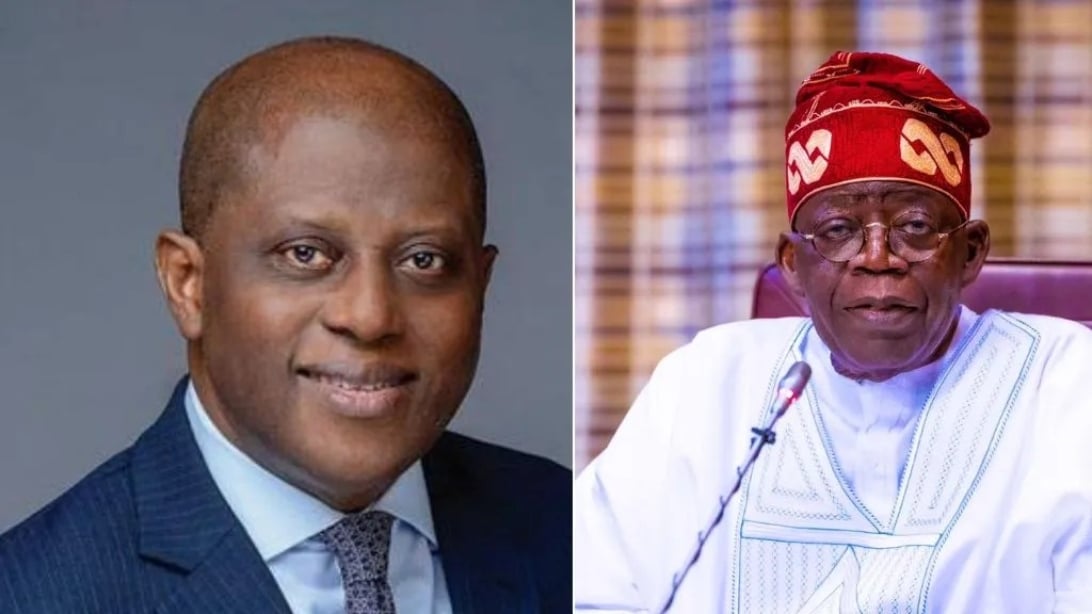The freefall of the Nigerian Naira against the US Dollar has been a cause for significant concern in recent years.
This depreciation has had a ripple effect on the Nigerian economy, impacting everything from import costs to inflation and individual purchasing power.
Against this backdrop, the Central Bank of Nigeria (CBN) Governor, Yemi Cardoso, and President Bola Tinubu have implemented a range of policies aimed at curbing the Naira's decline and fostering economic stability.
This article delves into these policies, analyzing their effectiveness and potential impact on the future of the Nigerian currency.
Understanding the Context:
Before examining specific policies, it's crucial to understand the complex factors contributing to the Naira's weakness:
- Global oil price fluctuations: Nigeria, heavily reliant on oil exports, suffers when global oil prices dip. This reduces foreign exchange earnings, putting pressure on the Naira.
- Import dependence: Nigeria relies heavily on imported goods, making it vulnerable to exchange rate fluctuations. A weaker Naira translates to higher import costs, impacting essential goods and services.
- Inflationary pressures: Naira depreciation fuels inflation, eroding purchasing power and making it harder for Nigerians to afford basic necessities.
- Foreign exchange scarcity: Limited access to foreign exchange due to various factors, including capital flight and restrictions, further weakens the Naira.
Cardoso and Tinubu's Policy Landscape:
1. Monetary Policy Adjustments:
- Interest rate hikes: The CBN has raised interest rates several times to curb inflation and attract foreign investors, potentially strengthening the Naira. However, this can also slow economic growth.
- Tightening money supply: The CBN has implemented measures to limit the amount of money in circulation, aiming to control inflation and stabilize the exchange rate. However, this can restrict access to credit, hindering businesses.
2. Foreign Exchange Management:
- Multiple exchange rate systems: The CBN implemented various exchange rate windows for different sectors, aiming to prioritize essential imports and stabilize specific sectors. However, this system's complexity raises concerns about transparency and potential arbitrage.
- CBN interventions: The CBN has directly intervened in the forex market, selling dollars to commercial banks to meet demand and influence the exchange rate. This approach can be costly and unsustainable in the long run.
- Forex restrictions: The CBN has imposed restrictions on certain transactions requiring foreign exchange, aiming to conserve forex reserves and prioritize essential imports. These restrictions, however, can create a black market and hinder international trade.
3. Fiscal Policy Measures:
- Government spending cuts: The government has implemented austerity measures to reduce spending and control budget deficits, aiming to improve investor confidence and attract foreign capital. However, these cuts can impact social programs and essential services.
- Diversifying the economy: Efforts are underway to reduce reliance on oil exports and diversify the economy towards other sectors like agriculture and manufacturing. This can potentially increase export earnings and reduce dependence on foreign exchange.
Evaluating the Impact:
The effectiveness of these policies in reviving the Naira remains a subject of debate. While some argue they have helped stabilize the exchange rate and curb inflation, others point to their limitations:
- Limited success: Despite policy interventions, the Naira continues to depreciate, highlighting the challenges of addressing deeply rooted economic issues.
- Mixed effects: Interest rate hikes and forex restrictions, while controlling inflation, can hinder economic growth and access to credit.
- Sustainability concerns: Direct CBN interventions are expensive and cannot be sustained in the long run.
- Transparency issues: The complexity of multiple exchange rate systems raises concerns about fairness and potential manipulation.
The Road Ahead:
Reviving the Naira requires a multi-pronged approach addressing fundamental economic challenges.
While Cardoso and Tinubu's policies have aimed to achieve this, their long-term effectiveness remains uncertain.
Here are some crucial considerations for the future:
- Addressing structural issues: Diversifying the economy, reducing reliance on oil, and promoting exports are crucial for long-term currency stability.
- Transparency and accountability: Clear and consistent communication of forex policies and tackling black market activities are essential for building trust.
- Sustainable solutions: Moving away from ad-hoc interventions and focusing on policies that promote economic growth and foreign investment are key.
- Public-private partnerships: Collaboration between the government, private sector, and the CBN can foster innovative solutions and attract much-needed investment.
Conclusion:
The fate of the Naira hinges on effectively addressing the complex economic challenges it faces.
While the policies implemented by Yemi Cardoso and President Tinubu have aimed to curb the currency's fall, their limitations and the underlying structural issues necessitate a broader, long-term vision.
By focusing on economic diversification, fostering transparency, and promoting sustainable growth, Nigeria can chart a course towards a more stable and resilient Naira.




















